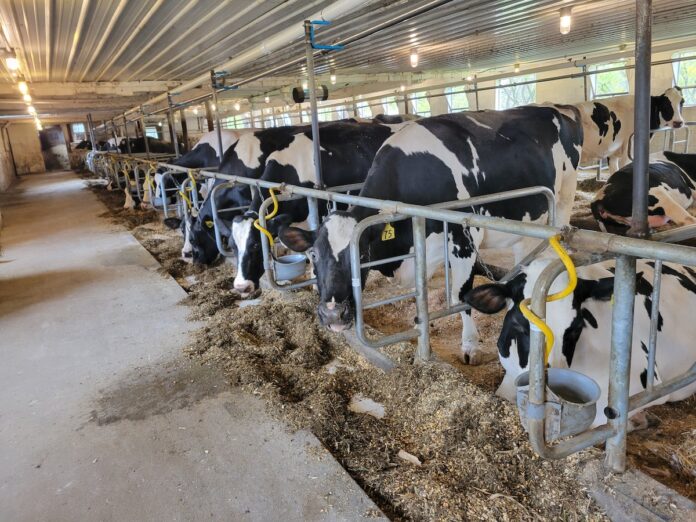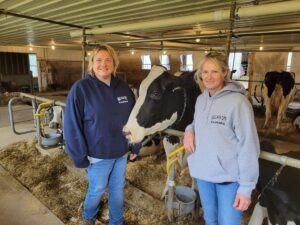
FREEDOM, Pa. — A milk market is not a sure thing. Just ask a former Dean Foods farmer.
In 2018, Dean Foods announced it was dropping more than 100 dairy farmers in eight states, including Pennsylvania and Ohio. Last year, Horizon Organic ended contracts with 89 dairy farms throughout New England and New York.
That’s the worst-case scenario, and it doesn’t happen often. But no farm is immune.
There are things farmers can do to make their farms more attractive when switching markets. Eric Grabman, president of the western chapter of the Pennsylvania Association for Food Protection, has some advice for farmers looking to change markets.
“Guys have to be self-critical,” he said. “What can I do to improve this, not what have I done in the past? Be very honest in your own appraisal.”
Grabman is a state-certified milk inspector who works for a private, family-owned dairy in Pennsylvania. He said he gets calls once or twice a week from farmers interested in changing markets.
There’s a variety of reasons a dairy farmer may want to switch, including hauling costs, bonus or incentive programs, or even interpersonal relationships with inspectors or others with the company.
When he looks to bring on a new farm, first impressions are important, he said. He pays attention to the surroundings of the farm as he pulls in. Is there bale wrap, old fence posts and metal drums lying around? A lot of weeds? Is it muddy? Are the animals dirty?
A farm could have excellent quality milk, but if it looks bad, that could cause issues with an inspection.
Even for existing farms in a certain market, it’s important to keep things nice. In Pennsylvania, farms are required to be inspected once every six months by a sanitation inspector. For a milk processor to ship milk across state lines, they have to pass a more stringent federal rating inspection, which is when a Food and Drug Administration inspector inspects a percentage of the processor’s farms at random.
“Perception matters,” Grabman said, particularly because the dairy industry is under a microscope from consumers and animal rights activists.

Grabman looks for farms like Wallace City Farm, in Freedom, Pennsylvania, run by the Scheel family. They sell their milk to Marburgers, based in Evans City, Pennsylvania. Wallace City Farm is an older farm milking about 40 cows in a tie-stall barn with a milk pipeline. The barn is old but well-lit and clean. There are no cobwebs or clutter.
“If I don’t want to drink the milk, I don’t expect anyone else to drink it,” said Alison Raybuck, one of the Scheel sisters.
Her sister, Laura Miles, said people have told them they drink Marburger’s milk just because they know the family and have visited the farm. It’s that sense of pride that keeps them going.
The sisters run the daily dairy operations. Their younger brother handles the fieldwork, and their children help out in a variety of ways. Being able to stay in the barn and focus on that is helpful in keeping things well-kept.
That’s not everyone’s situation. Many dairy farmers are older and still doing things on their own without the help of extended family. The farm might have been in good shape years ago but it’s fallen into disrepair. Grabman said he understands that. He said farmers should ask their inspector what they can do to improve the farm.
For a farm that’s a little rough around the edges, Grabman will inspect, tell the farmers what needs to be fixed and then give time for the problems to be addressed before a reinspection.
“Most of these fieldmen are looking for cooperation with their farmers,” he said.
(Reporter Rachel Wagoner can be reached at 724-201-1544 or rachel@farmanddairy.com.)









